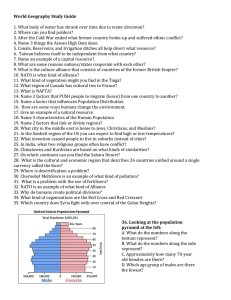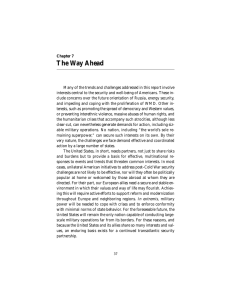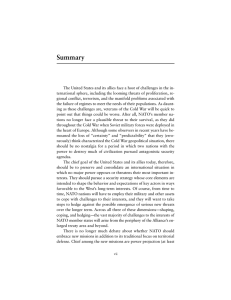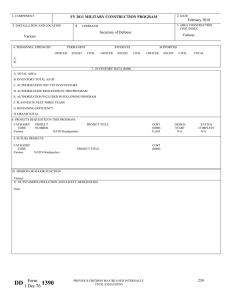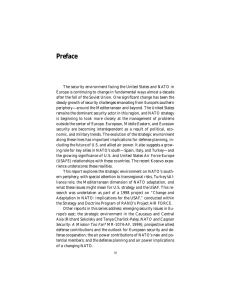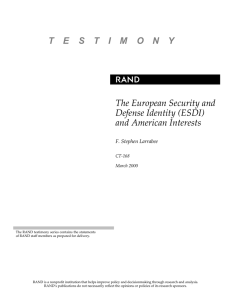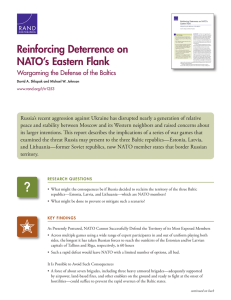CONGRESS RESPONDS
advertisement
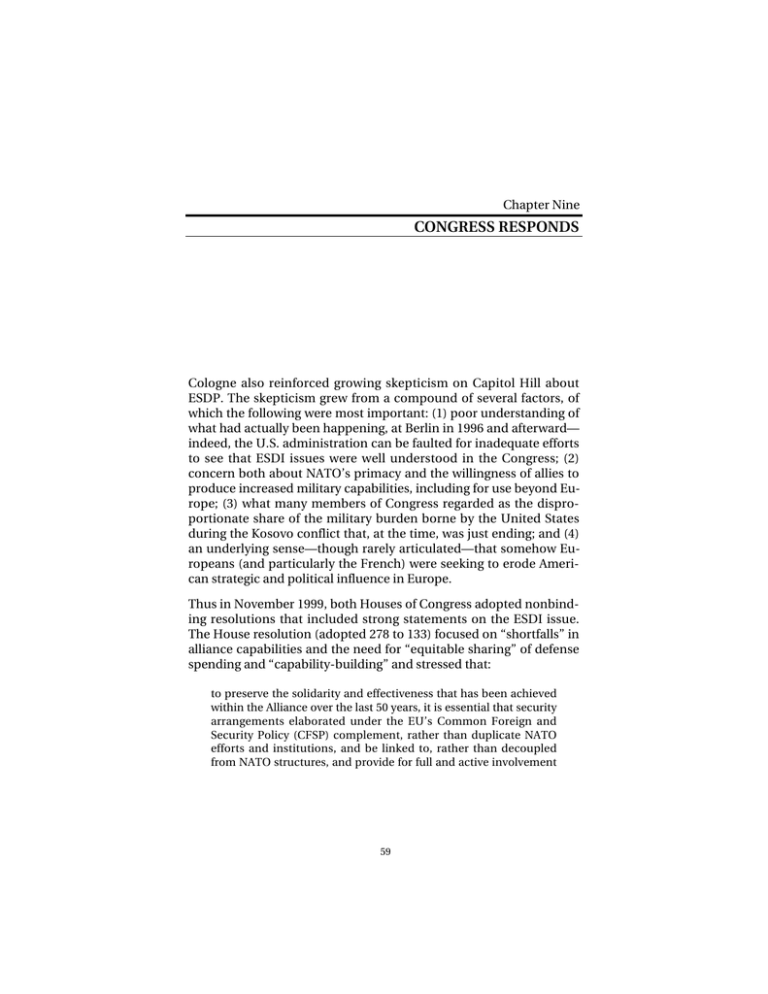
Chapter Nine CONGRESS RESPONDS Cologne also reinforced growing skepticism on Capitol Hill about ESDP. The skepticism grew from a compound of several factors, of which the following were most important: (1) poor understanding of what had actually been happening, at Berlin in 1996 and afterward— indeed, the U.S. administration can be faulted for inadequate efforts to see that ESDI issues were well understood in the Congress; (2) concern both about NATO’s primacy and the willingness of allies to produce increased military capabilities, including for use beyond Europe; (3) what many members of Congress regarded as the disproportionate share of the military burden borne by the United States during the Kosovo conflict that, at the time, was just ending; and (4) an underlying sense—though rarely articulated—that somehow Europeans (and particularly the French) were seeking to erode American strategic and political influence in Europe. Thus in November 1999, both Houses of Congress adopted nonbinding resolutions that included strong statements on the ESDI issue. The House resolution (adopted 278 to 133) focused on “shortfalls” in alliance capabilities and the need for “equitable sharing” of defense spending and “capability-building” and stressed that: to preserve the solidarity and effectiveness that has been achieved within the Alliance over the last 50 years, it is essential that security arrangements elaborated under the EU’s Common Foreign and Security Policy (CFSP) complement, rather than duplicate NATO efforts and institutions, and be linked to, rather than decoupled from NATO structures, and provide for full and active involvement 59 60 The European Security and Defense Policy of all European Allies rather than discriminating against European Allies that are not members of the EU.1 For its part, the Senate adopted a resolution that was both stronger and more direct. While it “acknowledge[d] the resolve of the European Union to have the capacity for autonomous action so that it can take decisions and approve military action where the Alliance as a whole is not engaged,” [this] “sense of the Senate” resolution presented, without ambiguity, eight clear standards for judgment that ran the gamut of U.S. concerns. In summary: 1. The EU should make it clear that it would undertake “an autonomous mission . . . only after [NATO] had declined to undertake that mission.” 2. “Improved European military capabilities, not new institutions outside of the Alliance, are the key to a vibrant and more influential [ESDI] within NATO.” 3. “Failure of the European allies . . . to achieve [DCI] goals would weaken support for the Alliance in the United States.” 4. The allies should be pressed “to commit the resources necessary to upgrade their capabilities to rapidly deploy forces over long distances, sustain operations for extended periods of time, and operate jointly with the United States in high-intensity conflicts”—implying, of course, possible allied military actions beyond Europe. 5. Non-EU NATO members should “not be discriminated against, but [should] be fully involved when the European Union addresses issues affecting their security interests.” 6. The EU should not “promote a strategic perspective on transatlantic security issues that conflicts with that promoted by [NATO].” 7. There should be no “unnecessary duplication of the resources and capabilities provided by NATO.” ______________ 1 H. Res. 59, adopted November 2, 1999. Congress Responds 61 8. Implementing Cologne “should not promote a decline in the military resources that European allies contribute to NATO.”2 This vigorous catalogue of ministrations about what ESDI/ESDP should and should not do was relieved only by the fact that the resolution passed unanimously—an indication in Senate practice that concerns were not so widely shared as to provoke a debate followed by a formal recorded vote. Nevertheless, coming from a body that only the year before had, in effect, conducted a referendum on continued U.S. commitment to European security by voting (80 to 19) to admit three new members to NATO, this was a clear message to the European allies that they had better tread carefully in developing ESDI: Whether based on valid analysis or at least in part on misunderstanding, widespread displeasure on Capitol Hill was not something to incur lightly. ______________ 2 S. Res. 208, adopted November 8, 1999.
